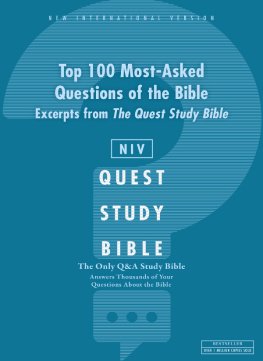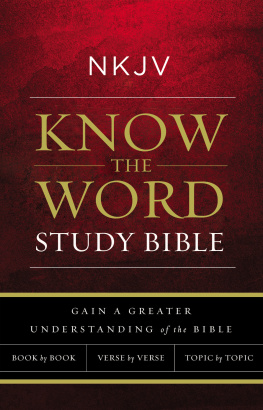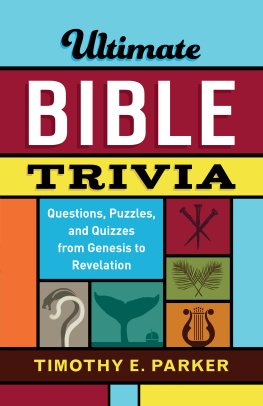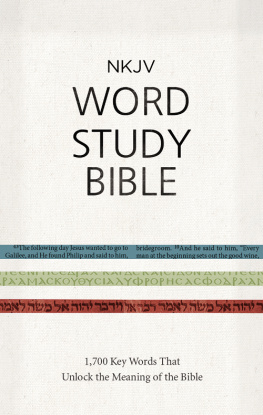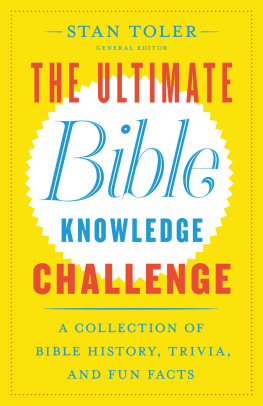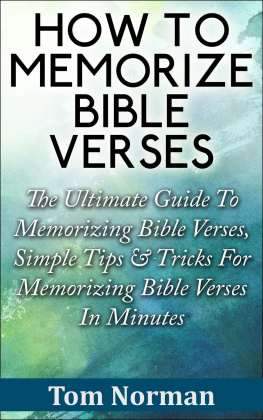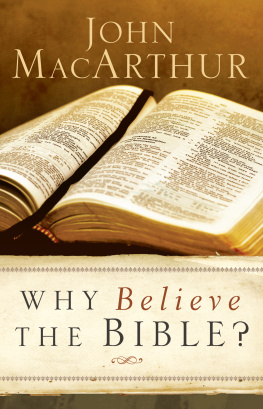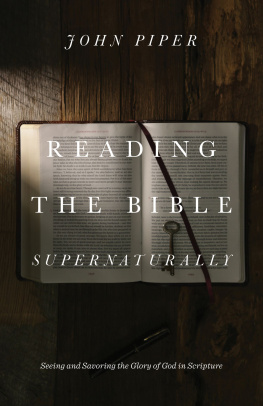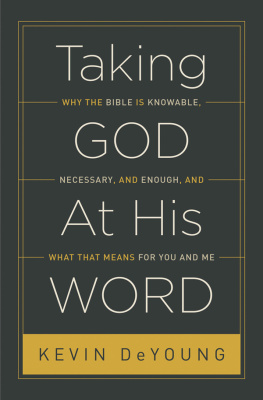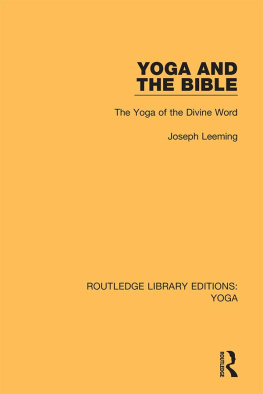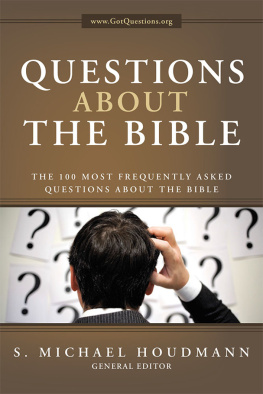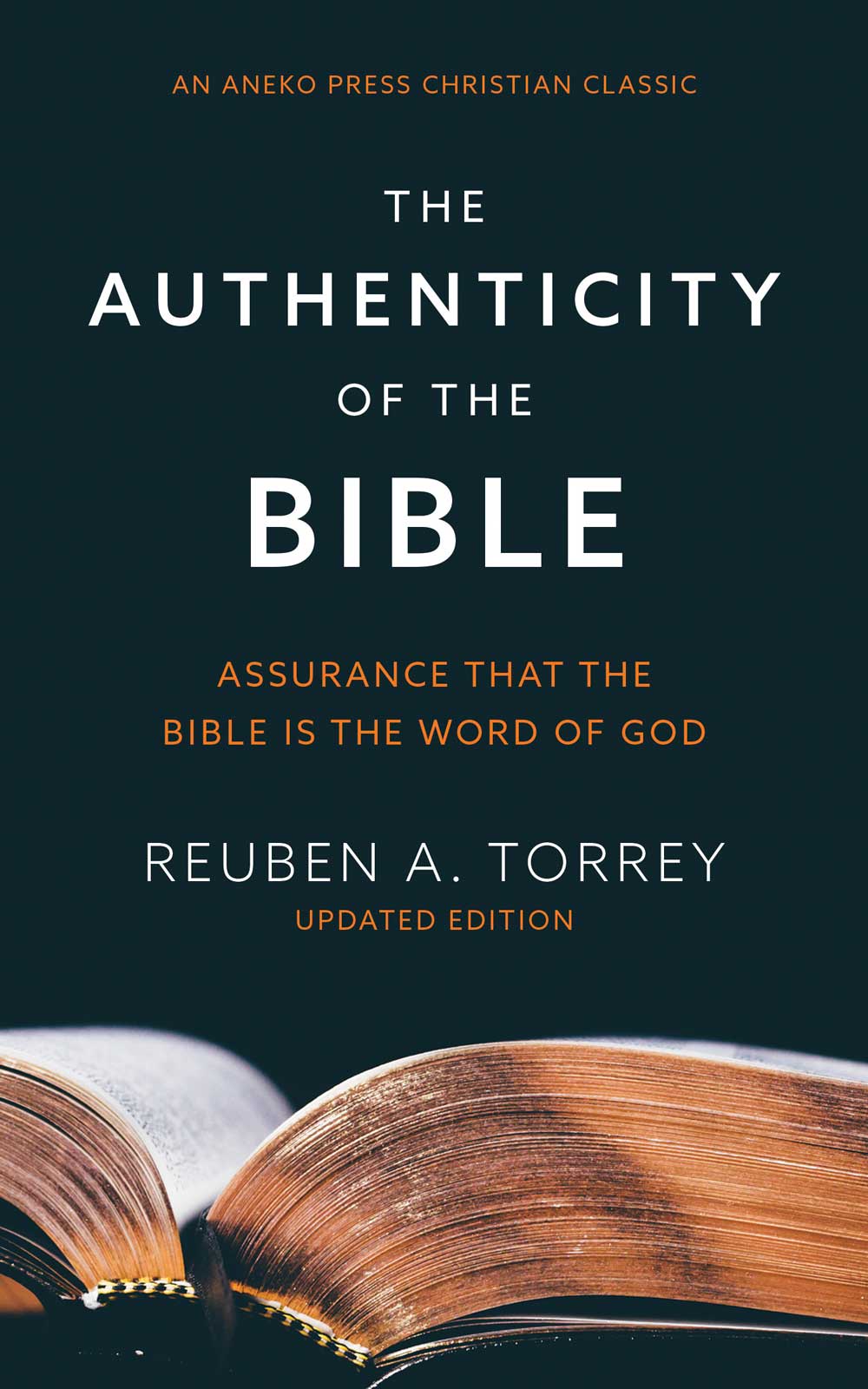The Authenticity of the Bible
Assurance that the Bible is the Word of God
Original Title:
The Bible and Its Christ
Reuben A. Torrey

Contents
Ch. 1:
Ch. 2:
Ch. 3:
Ch. 4:
Ch. 5:
Ch. 6:
Ch. 7:
Ch. 8:
Ch. 9:
Ch. 10:
Register This New Book
Benefits of Registering*
- FREE accidental loss replacement
- FREE audiobook Pilgrims Progress, audiobook edition
- FREE information about new titles and other freebies
www.anekopress.com/new-book-registration
*See our website for requirements and limitations.
Chapter 1
Why I Believe That the Bible Is the Word of God
I s the Bible the Word of God? That is the most important question in religious thought. If the Bible is the Word of God, if it is an absolutely trustworthy revelation from God Himself of Himself, His purposes and His will, of mans duty and destiny, and of spiritual and eternal realities, then we have a starting point from which we can proceed to the conquest of the whole domain of religious truth.
However, if the Bible is not the Word of God, if it is the mere product of mans thinking, speculation, and guessing, if it is not altogether trustworthy in regard to religious and eternal truth, then we are all at sea, not knowing where we are drifting, but we can be sure that we are not drifting toward any safe port.
I did not always believe that the Bible is the Word of God. I sincerely doubted that the Bible was the Word of God. I doubted that Jesus Christ was the Son of God. I doubted whether there was a personal God. I was not an infidel, but I was a skeptic. I did not deny it, but I questioned it. I was not an atheist, but I was an agnostic. I did not know, but I was determined to find out.
If there was a God, I was determined to find that out and act accordingly. If there was not a God, I was determined to find that out and act accordingly. If Jesus Christ was the Son of God, I was determined to find that out and act accordingly. If Jesus Christ was not the Son of God, I was determined to find that out and act accordingly. If the Bible was the Word of God, I was determined to find that out and act accordingly. If the Bible was not the Word of God, I was determined to find that out and act accordingly.
Well, I found out. I found out beyond a doubt that there is a God, that Jesus Christ is the Son of God, and that the Bible is the Word of God. Today it is not just a matter of mere probability with me, nor even of mere belief, but it is a matter of absolute certainty.
I am now going to give you some of the reasons why I believe that the Bible is the Word of God. I will not give you all the reasons, for it would take months to do that. I will not even give you the reasons that are most convincing to me personally, for these are based upon my experience and are often so personal that they cannot be appropriately explained to another.
However, I will give you reasons that will prove conclusive to anyone who is honestly and unbiasedly seeking the truth and who desires to know the truth and is willing to obey it. These reasons will not convince anyone who is determined not to know the truth or who is unwilling to obey it. If someone will not receive the love of the truth, he must be left to his own deliberate choice of error, given over to strong delusion to believe a lie (2 Thessalonians 2:11). However, if someone is searching for the truth, no matter how completely uncertain or confused he might be, he can be led into the truth.
Reason 1: The Testimony of Jesus Christ
I believe the Bible is the Word of God because of the testimony of Jesus Christ to that fact. We live in a day in which many people say that they accept the teaching of Jesus Christ, but that they do not accept the teaching of the whole Bible. They say that they believe what Jesus Christ says, but they are not sure if they believe what Moses said, or is said to have said, or what Isaiah said, or is said to have said, or what Jeremiah said, or Paul said, or John said, or that they are not sure about the rest of the Bible writers.
This position may at first seem rational, but in reality it is completely irrational. If we accept the teaching of Jesus Christ, we must accept the whole Bible, for Jesus Christ has set the stamp of His authority upon the entire Book. If we accept His authority, we must accept all that He sets the stamp of His authority upon.
Old Testament
As to Christs endorsement of the Old Testament, look first at Mark 7:13. Jesus had just quoted from the law of Moses. He did not just quote from the Ten Commandments, but He also quoted from other portions of the law of Moses. He set the teaching of the law of Moses against the traditions of the Pharisees and scribes. In this verse, He said, You make the word of God of none effect through your tradition . He distinctly called the law of Moses the word of God .
It is sometimes said that the Bible nowhere claims to be the Word of God, yet here Jesus Christ Himself distinctly asserted that the law of Moses is the Word of God. If, then, we accept the authority of Jesus Christ, we must accept the law of Moses as the Word of God. Of course, this only covers the first five books of the Old Testament, but if we can accept this as the Word of God, we will have little difficulty with the rest of the Old Testament, for it is here that the hottest battle is being fought today.
Now turn to Matthew 5:18. Here Jesus says, Till heaven and earth pass away, one jot or one tittle shall in nowise pass from the law until all be fulfilled. Every Hebrew scholar knows that a jot is the Hebrew character yodh, the smallest character in the Hebrew alphabet, less than half the size of any other character in the Hebrew alphabet. A tittle is a little horn that the Hebrews put on their consonants. Jesus here asserts that the law of Moses as originally given is absolutely infallible down to its smallest letter and part of a letter. If, then, we accept the authority of Jesus Christ, we must accept the authority of the law of Moses as originally given and as contained in the Old Testament Scriptures.
Look next at John 10:35. Jesus had just quoted from one of the Psalms to prove a point He was making, and then He added, The Scripture cannot be broken , thus setting the stamp of His authority upon the absolute reliability and irrefutability of the Old Testament Scriptures.
Turn now to Luke 24:27, and you will read that Jesus, beginning at Moses and all the prophets, expounded unto them in all the Scriptures the things concerning Himself . In verse 44 of that same chapter, He says, All things must be fulfilled which were written in the law of Moses, and in the prophets, and in the Psalms. Every scholar knows that the Jews divided their Bible (our present Old Testament Scriptures) into three parts: the Law (the first five books of the Old Testament), the Prophets (most of the books that we call prophetic, and some of those that we call historical), and the Psalms or Sacred Writings, which are the remaining books of the Old Testament. Jesus Christ takes up each one of these three recognized divisions of the Old Testament Scriptures and sets the stamp of His authority upon each of them. If, then, we accept the authority of Jesus Christ, we are driven logically to accept the entire Old Testament Scriptures.
In Luke 16:31, Jesus says, If they hear not Moses and the prophets, neither will they be persuaded though one be raised from the dead. Thus, in the most emphatic way, He endorsed the truth of the Old Testament Scriptures.


